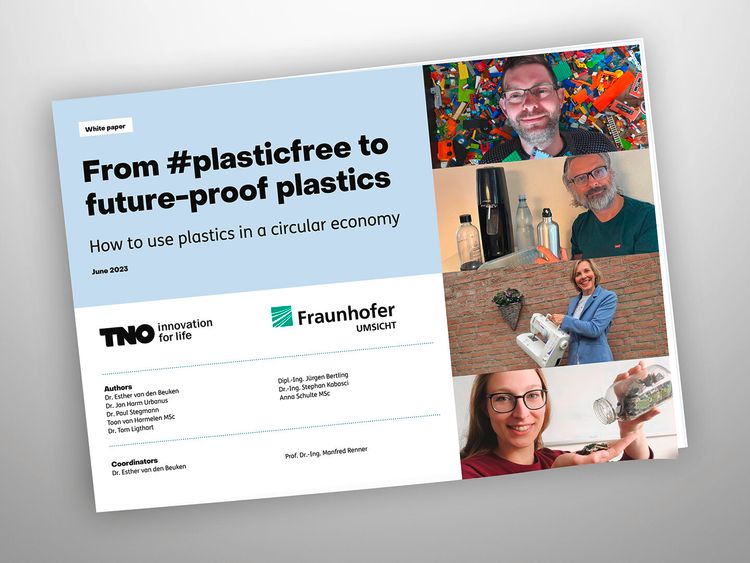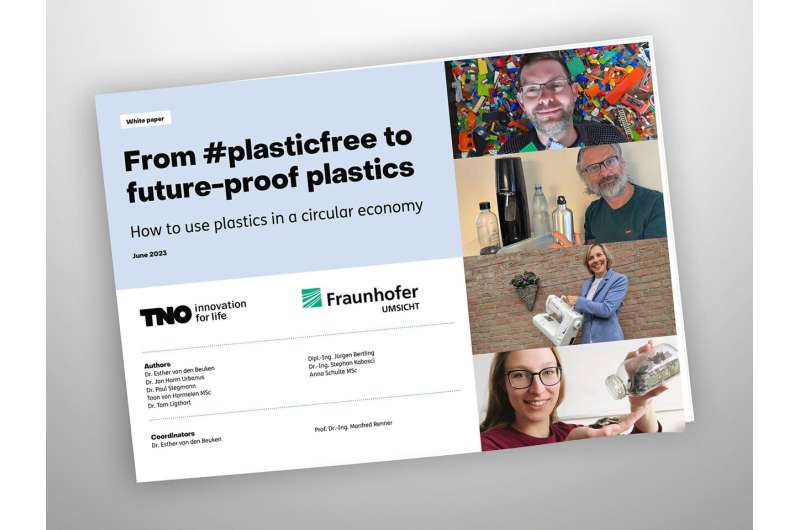Guide To The Future Of Plastics By Researchers

"The white paper explains how we can have a plastics economy that is sustainable, circular, and future-proof," says TNO/Fraunhofer UMSICHT.

What does a sustainable plastics economy look like? It means balancing using less plastics and using recyclable plastics. We need changes to meet the high demand for plastics in food packaging, car parts, and textiles. Researchers from Fraunhofer UMSICHT and TNO provide four strategies for a sustainable plastic economy in their white paper "From #plasticfree to future-proof plastics."
Plastics are cheap and lightweight, and they have great barrier abilities. But, they produce a lot of greenhouse gases and harm the surroundings. The making and use of plastics results in pollution, uses too much fossil resources, and relies on imports.
There are problems with using plastic. Glass could make things worse. We can't keep using plastics like before, but we also can't live without them. Manfred Renner says we need a new way to use plastics sustainably.
TNO and Fraunhofer UMSICHT wrote a white paper about plastics. This paper can help change how we make and use plastics. They looked at everyone's opinions and the possible new technologies. They also thought about how good the product is and compared it to other products without plastics. They studied how the product has an effect on the environment, society, and economy during its whole life. If we look at these things in a system, then we can decide if we should use, stop using, or change plastics.
Circular Economy Tactics
Researchers have come up with four strategic approaches to transform the current linear plastics economy. These approaches are Narrowing the Loop, Operating the Loop, Slowing the Loop, and Closing the Loop. The end goal is to create a fully circular economy.
The researchers suggest starting with reducing the amount of materials in a circular economy. Use renewable energy, minimize material losses, and use sustainable materials. To Slow the Loop, make materials and products last longer. To Close the Loop, collect, sort, and recycle plastics well.
Each approach has its own strategies. O strategies should be used at the same time and fully. It's difficult to decide which R strategies to use. Researchers say it needs a complex process.
Jürgen Bertling from Fraunhofer UMSICHT says there are many R-strategies for a product or service. They need to be compared, so the best one can be picked. The partners made a guiding principle using the waste hierarchy.
To make a holistic change, we need science, industry, politics and citizens to work together. To do this, we need to make changes in four areas: legislation and policy, circular chain collaboration, design and development, and education and information. We need to redesign polymers to use biomass and CO2. We also need better recycling technology for high-quality recycling.
Collaboration Hub For Diverse Industries
TNO and Fraunhofer UMSICHT are making a European Circular Plastics Platform (CPP). Esther van den Beuken tells us this. They want people to work together on making a Circular Plastics Economy. They'll find solutions to problems in plastic recycling. Anyone can join, like companies, groups and non-governmental organizations.
The platform will hold workshops, roundtable discussions, and studies. Members can participate online or in-person in Germany and the Netherlands. The purpose is to change public and industry behaviors on plastics.
Researches have made a guide about the future of plastics. You can find the information online. The guide can help us make better choices about how we use plastic. Plastic is a big problem for the environment. By reading the guide, we can learn how to reduce the amount of plastic we use. It will also tell us about new ways to make plastic that are more eco-friendly. We can use this information to make a better future for the planet.
You can't copy this document without permission. You might be allowed to use it for private study or research. It's only for getting information, nothing more.










































































